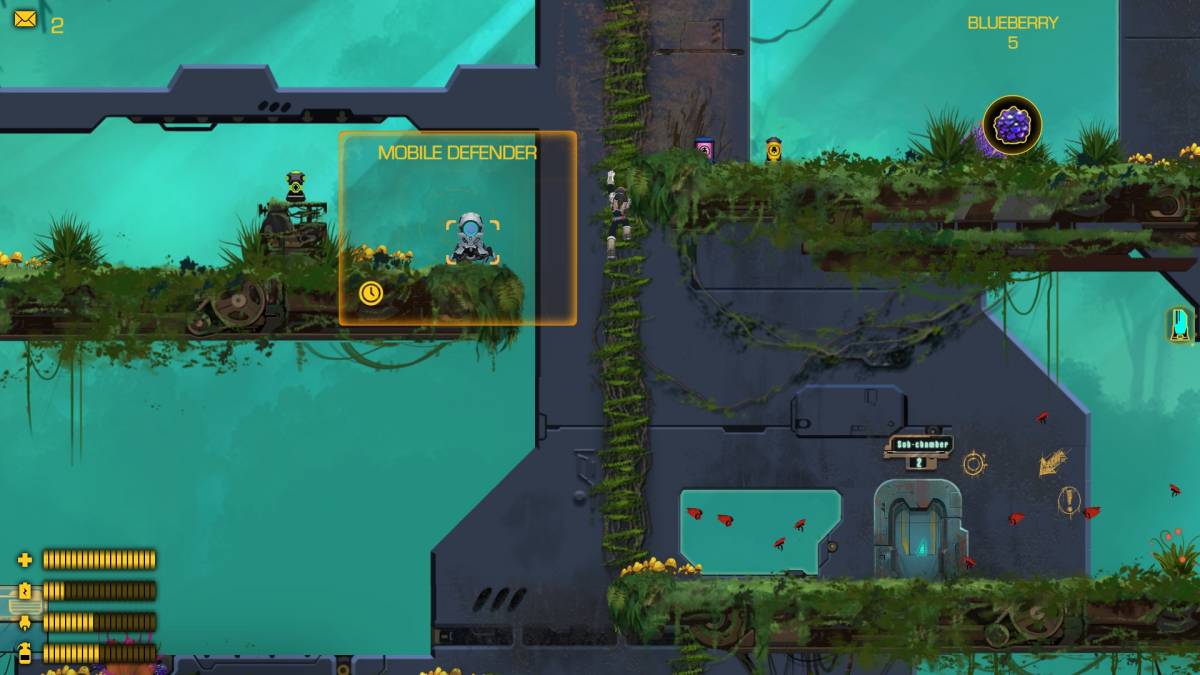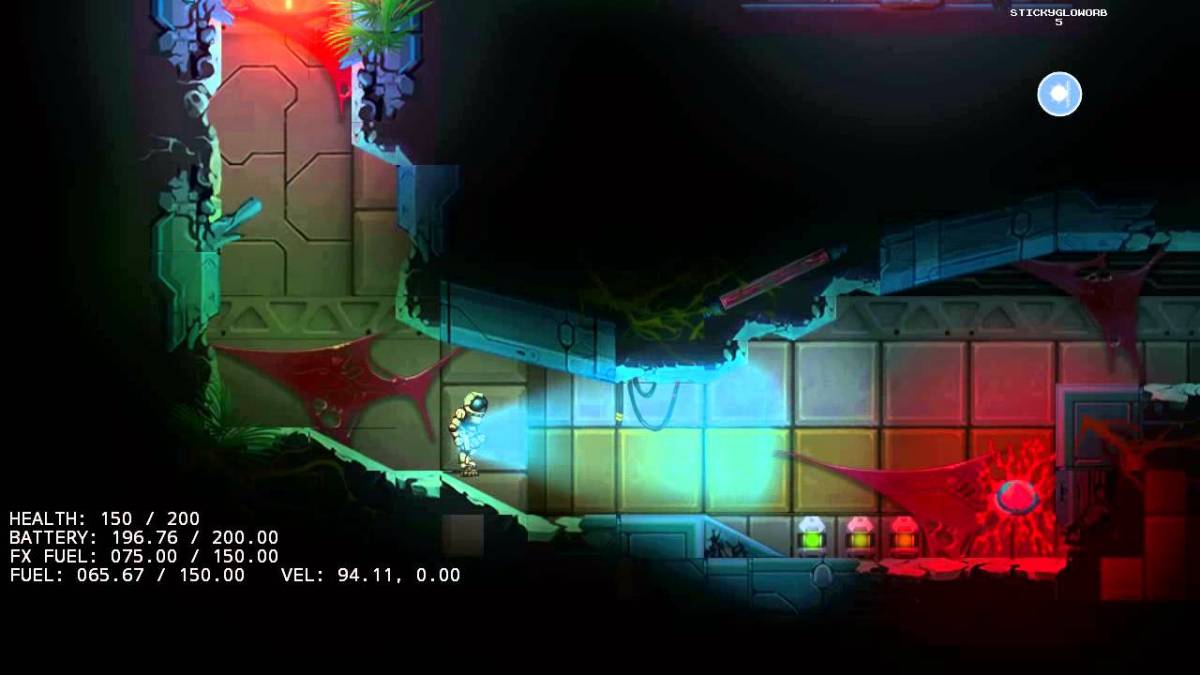Every now and again a game comes along that flips a tried-and-tested genre onto its head and delivers something truly spectacular. Metroidvania-style sci-fi platformer StarLit: Colony, developed by Rudolf Kremers, manages to be both totally unique and comfortingly familiar at the same time.
Set in a vast terraforming world infected by an alien disease, the player uses a scientific research camera to gain information about the diverse ecosystem of creatures, technologies and plants in the environment. Amassed in an electronic encyclopedia, the information can then be used to pit creatures against one another, distract them with particular fruits or simply outwit them into knocking themselves out for just long enough to get past. Creatures and systems can be photographed in different states of being; for example when relaxed, when startled into hostility, whilst eating. Each new state gives players an extra nugget of information about its behaviour or temperament, or whether it’s friendly.

The game forgoes run-and-gun combat in favour of rewarding the player for observation, experimentation and exploration. Once players have obtained a particular gadget they can destroy the infection, but be warned: doing so may free up the door they’re trying to open but it may also free that fearsome beast that viciously charges on sight. This means players must get creative with their knowledge, tactics and wits.
Kremers’ love affair with games and games development is a lifelong one. When his school introduced computers back in the 80s he created his first game, involving nuking a mouse in a house, rather than create databases and ‘other boring stuff’. After working on a variety of projects with a number of studios – this includes a third-person version of The Hitchhiker’s Guide to the Galaxy -Kremer realised he wanted to do ‘his own thing’ and started his company, Omni Systems Ltd. This led to the creation of an indie competition title called Dyson, later renamed Eufloria, which was nominated for the International Game Festival Grand Prize, the 2012 Best Debut Game BAFTA and was Runner Up for Apple Game of the Year.

StarLit: Colony is one of three projects to wrap production at the end of this year, the other two being Eufloria RPG, a game that mixes Eufloria-style plant growing, conquest, shooter, and gene stealing mechanics and Neopolis; an innovative cyberpunk RTS for PS4 and PC. Once these projects are all completed Kremers says his plan is to ‘take a deep breath and a reasonable break’ before embarking on his next project.
Though StarLit: Colony has no set release date as yet, Kremers hopes to release the game for PC, Xbox One and PS4 by the end of this year/early 2018, with the possibility of expanding on its already extensive number of modes, missions, challenges and secrets.
As someone who has absolutely loved science since before she left the womb (probably), I am super eager for this game to see release. Its mechanics are so interesting, the world Kremers has built is so compelling – he even wrote a feature-length screenplay to help with world-building – that I just know it’s going to keep me glued to my console for hours on end. Isn’t it a good thing I essentially play games for a living?
Some of the coverage you find on Cultured Vultures contains affiliate links, which provide us with small commissions based on purchases made from visiting our site.

